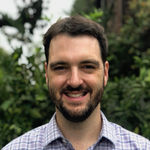The William and Noreen Hetznecker Professorship in Psychiatry
 Established by the family and friends of William and Noreen Hetznecker, this chair supports a faculty member who specializes in mental health in adolescence and emerging adulthood. The Hetznecker’s son James Hetznecker, MD, a board certified psychiatrist, led the way in creating this professorship to honor and extend his parents’ work improving the lives of people in their community.
Established by the family and friends of William and Noreen Hetznecker, this chair supports a faculty member who specializes in mental health in adolescence and emerging adulthood. The Hetznecker’s son James Hetznecker, MD, a board certified psychiatrist, led the way in creating this professorship to honor and extend his parents’ work improving the lives of people in their community.
Dr. James Hetznecker completed residencies and fellowships at the Hospital of the University of Pennsylvania, the University of Pennsylvania and the Children’s Hospital of Philadelphia. He wrote, “My parents’ work on behalf of others was instilled with conviction, and every challenge they faced in life was met with faith, humility and grace. This professorship will enhance Penn’s efforts to support community health on a broader scale—and I can think of nothing that would make my parents happier.”
Dr. James Hetznecker wrote this tribute to his parents: “My father, William Hetznecker, MD “Bill”, was national leader in community and social psychiatry, beginning in the 1960s. As community psychiatry began to flourish through the War on Poverty fostered by the Johnson administration, my father was a pioneer as he responded to the compelling need to provide services to the most vulnerable populations of children and families in Philadelphia. His formative years in this field originated during his psychiatry residency at the University of Rochester, followed by a child psychiatry fellowship at Johns Hopkins University. He joined the faculty of the Department of Psychiatry at Temple University in 1963, where he developed a series of truly innovative programs to assist children and adolescents in North Philadelphia. These programs not only served those in need, but also educated those who were taking care of those in need: psychologists, social workers, educators, medical students and psychiatrists. The programs were both creative and practical in nature—and were based on substantial input from members of the community served.
“In 1976, he became of Professor of Psychiatry in Pediatrics and provided clinical training to hundreds of young physicians. Dr. Hetznecker also worked for 30 years as a consultant to various institutions, including the School Districts of Philadelphia, Upper Darby and Lower Merion. He was board certified in both adult and child psychiatry for the better part of two decades and was a board examiner for the American Board of Psychiatry and Neurology for both adults and children.
“My father was a participant in many committees and associations related to psychiatry including the Committee on Mental Health Services to ethnic minorities and lower income families for the National Association of Mental Health and the Task Force on School Consultation for the American Psychiatric Association. There are many examples, but the citation of several illustrates how my father translated his commitment into action: a training program for “paraprofessionals,”, adults who lived in the community who became counselors for children and adolescents in that community; the use of neighborhood paraprofessionals identified as “Incentive Specialists” who helped teachers learn more about the lives of the children they were teaching; the establishment of a ”Day Diagnostic Center” where educators identified children whose learning disabilities affected their mental health; consultation to social workers in the city’s welfare department to assist them in their work with deprived and abused children who were being placed in foster care.
“When my father transitioned to working at St. Christopher’s Hospital for Children he continued his activities as a consultant to teachers in public school classrooms, and assisted in changing the child psychiatry clinic there from a traditional psychoanalytic orientation to a community-based facility. He also participated in the training of a team of diverse groups of African-American, Latinx and white high school students who became therapists for younger school-age children in the same neighborhoods. Much of his work has been described in the book he co-authored, On Behalf of Children, published in 1972, and in other publications in various journals.
“My father remained steadfast in his community psychiatry interests throughout his life, and my mother was right beside him and found her greatest joy in serving the community. My mother, Noreen P. Ryan Hetznecker, a native of Chicago, earned a Bachelor's degree from Mundelein College. She met my father while he was a medical student at Loyola University in Chicago; they married in 1957, and in 1967, they moved to Merion Station.
Inspired by the civil-rights struggle, my mother was the ultimate advocate. When the Reverend Dr. Martin Luther King Jr. was assassinated in 1968, she led her children to collect money from neighbors for the Southern Christian Leadership Conference and cherished a thank-you letter from Ralph Abernathy, Dr. King's top aide. It was very important to her that we experience diversity, so she joined the predominantly African American congregation at St. Rose of Lima Roman Catholic Church in Overbrook.
In the early 1980s, doctors diagnosed my mother with an autoimmune disease that caused deterioration of her eyesight, and she was totally blind by the 1990s. With the aid of guide dogs, she used public transportation to commute to Temple University (from which she earned a Master’s degree in 1983 and where she served as an academic advisor to undergraduate students), to events in Center City, and to computer classes at the Montgomery County Association for the Blind in North Wales.
“My mother also served on the Board of the Pennsylvania Initiative on Assistive Technology, which advocates technology for the elderly and disabled. She visited elementary schools to teach students about the world of the blind, and she joined the Philadelphia Museum of Art's classes for the blind; several of her sculptural pieces were displayed at the museum.”
 Current Chairholder
Current Chairholder
Michael Gandal, MD, PhD
Michael Gandal, MD, PhD, is an Associate Professor in the Departments of Psychiatry and Genetics within the Perelman School of Medicine at the University of Pennsylvania and a member of the Lifespan Brain Institute at the Children’s Hospital of Philadelphia (CHOP).
As a practicing psychiatrist, Dr. Gandal specializes in the treatment of adolescents and adults with neurodevelopmental, psychiatric disorders, including autism, ADHD, bipolar disorder, and schizophrenia. Dr. Gandal directs the Developmental Neurogenomics Research Laboratory, which leverages large-scale genetic and genomic approaches to better understand the biological mechanisms contributing to – and novel treatment approaches for – these developmental neuropsychiatric disorders.
Dr. Gandal received his B.S. in engineering (biomedical computation) from Stanford University and his MD/PhD in bioengineering from the University of Pennsylvania; his graduate studies involved using electrophysiology to investigate neural circuit dysfunction in mouse models of schizophrenia and autism. He completed his residency training in psychiatry at UCLA and a postdoctoral fellowship in neurogenetics in the laboratory of Dan Geschwind, characterizing the genetic contributions to shared gene expression alterations in the human brain across several major psychiatric disorders.
Dr. Gandal has published more than 65 manuscripts to date including in leading scientific journals such as Science, Nature, and Cell. His research has been featured on national news outlets including CNN, NPR, the Washington Post, and Newsweek. His work was recognized by both Autism Speaks and Spectrum as among the Top 10 most notable papers in 2018. In 2020, he received the Theodore Reich Early Career Investigator of the Year Award from the International Society for Psychiatric Genetics.

